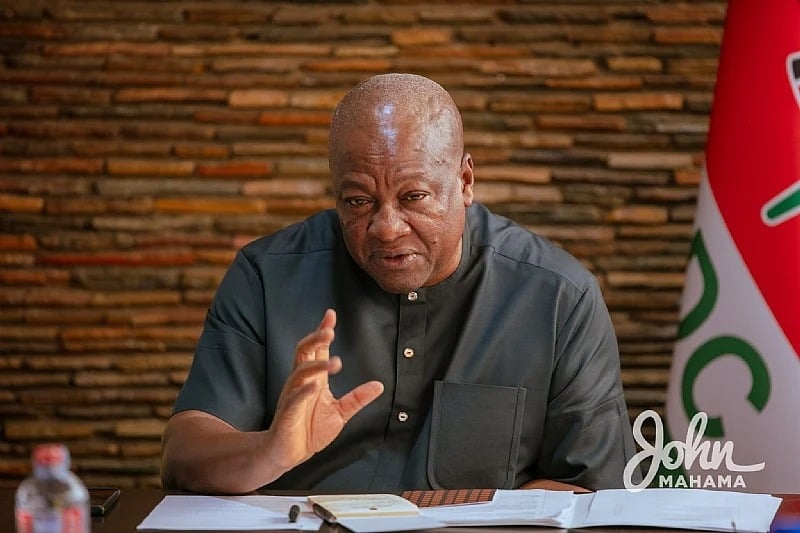Former President John Dramani Mahama has unveiled his plans for the education sector should he return to power in 2025, emphasizing the abolition of the controversial double-track system currently being used in Senior High Schools (SHS). Mahama’s primary objective is to restore a stable academic calendar, which he identifies as crucial for improving the educational experience for students. He highlighted the importance of extending the Free Senior High School initiative to encompass students enrolled in private schools while ensuring a dedicated funding source for quality secondary education. This would be achieved by allocating a percentage of oil revenues specifically for educational purposes, thereby creating a more reliable financial mechanism to support and enhance the quality of education across Ghana.
In addition to financial reforms, Mahama has signaled an ambitious infrastructural drive aimed at completing abandoned E-block projects and addressing the infrastructural needs of existing SHS and Technical and Vocational Education and Training (TVET) institutions. A major aspect of his platform includes decentralizing the procurement of essential supplies such as food, ensuring that students receive timely deliveries of better-quality provisions. He emphasized the integration of the Free SHS Secretariat into the Ghana Education Service (GES) to streamline the policy’s implementation and stressed the need for a curriculum reform focused on Science, Technology, Engineering, and Mathematics (STEM), alongside vocational training. Mahama’s holistic educational reforms are designed to build competencies that align with modern job market demands.
As part of his education reform agenda, Mahama pledged to introduce specialized artificial intelligence labs in selected secondary schools nationwide and continue the distribution of free laptops and tablets to SHS students. He aims to enhance collaboration with various stakeholders, including Parent-Teacher Associations (PTA) and alumni associations, to fortify the support systems around secondary education. Additionally, Mahama plans to strengthen government partnerships with religious organizations that manage mission schools and lift the current restrictions on the Ghana Education Trust Fund (GETFund), allowing these resources to better serve their core purpose of funding education.
To address the pressing need for technological integration in education, Mahama promised to upgrade existing Information and Communication Technology (ICT) laboratories while establishing new ones in schools that currently lack such facilities. He also advocates for the expansion of digital libraries to widen access to global educational resources. Moreover, under his administration, there would be a focus on expanding Science Resource Centres to bolster STEM and TVET education, addressing existing challenges in the Computerized School Selection and Placement System (CSSPS) to root out corruption and ensure a merit-based approach to school placements.
In his comprehensive educational reform plan, Mahama underscored the need for upgrading selected SHSs across various regions into Grade A institutions, identifying infrastructural gaps through audits, and making investments that would improve both access and quality. He also outlined a vision for a reformed TVET system, emphasizing the integration of digital skill sets and soft skills into training programs, alongside a focus on practical trade skills and fostering an entrepreneurial mindset among students. This reform is intended to prepare a highly skilled workforce capable of meeting the demands of a rapidly evolving job market.
Finally, Mahama made a rallying call for the electorate to vote for him and the National Democratic Congress (NDC) parliamentary candidates in the upcoming elections. He positioned his vision for educational reform as part of a broader campaign theme of “Resetting Ghana: Jobs, Accountability, and Prosperity,” with a focus on investing in people as a pathway to inclusive growth. His plan represents a departure from current educational policies, aiming to create a more equitable and effective education system while addressing issues of infrastructure, digital literacy, and skill development in line with modern economic needs.


